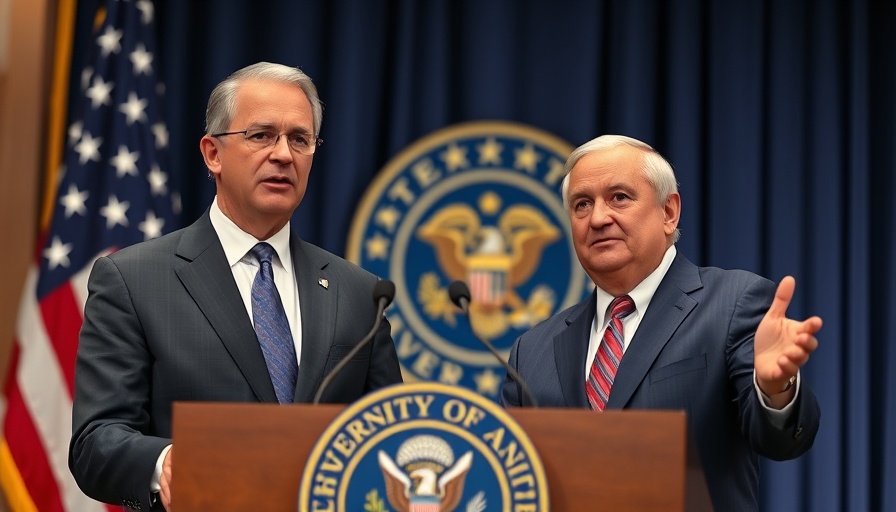
Health Care Shakeup: RFK Jr. and the Future of Insurance
In a significant move promising transformative change, Health and Human Services Secretary Robert F. Kennedy, Jr. recently announced reforms in the prior authorization policies of several major health insurance providers. With nearly 257 million Americans affected, this initiative aims to streamline access to much-needed healthcare by cutting excessive bureaucracy that often leaves patients frustrated and without timely care.
Tackling Bureaucratic Barriers
At a meeting in Washington D.C., attended by representatives from leading insurance companies like Aetna, Blue Cross Blue Shield, and Cigna, Kennedy expressed a pressing need to revise the current system. “Americans shouldn’t have to negotiate with their insurer to get the care they need,” he asserted. Prior authorization, a common practice that requires insurers to approve certain treatments, has been known to delay or even derail patients' access to essential services, particularly within vulnerable communities such as the elderly and those with chronic conditions.
The Burden on Families and Caregivers
For many caregivers, navigating the health insurance landscape can be a daunting and often discouraging experience. The proposed changes include the development of a standardized electronic prior authorization system and the commitment to reduce the number of treatments that require prior approval. This is especially important for families caring for elderly loved ones, as timely access to services is crucial for effective care. The ongoing struggle to understand and comply with insurance demands detracts from the emotional and practical aspects of caregiving.
The Ripple Effect on Senior Care Solutions
In Muskegon and elsewhere, the ripple effects of these reforms could lead to enhanced access to senior care solutions, grounding the support networks that exist for adult care and assisted living facilitation. Caregiver community groups may find it easier to advocate for the needs of those they support, thanks to lessened red tape. Reduced delays in accessing dementia assistance and financial aid for Alzheimer’s support facilities can bolster the infrastructure surrounding elderly care, creating a more robust and responsive environment for the aging population.
What This Means for the Elderly Community
These changes come at a crucial time as America's elderly demographic grows, demanding more thoughtful and informed healthcare solutions. The increase in mental health support—through resources like cognitive care facilities and emotional support groups—will be essential to meet the rising needs in a timely manner. Plans for real-time responses to authorization requests are set for implementation by 2027, promising a shift toward a more proactive rather than reactive healthcare framework.
Community Resources You Can Trust
For those seeking insurance options for senior care in Muskegon, becoming familiar with the latest developments is vital. Elderly contact services and community resources can significantly improve family support. Engaging in local networks can foster a deeper understanding of the available welfare programs for elders, ensuring that caregivers are informed and empowered to navigate these changes effectively.
Moving Forward: Insightful Changes Ahead
As these proposals unfold, they highlight an increasingly urgent need for systemic reforms in health insurance. The reforms are not just about reducing costs or improving insurance company efficiency; they are fundamentally about restoring dignity to the healthcare process, ensuring that physicians and patients can focus on what matters—getting patients the care which they deserve without unnecessary hurdles. This convergence of interests among healthcare providers and insurers marks a significant step towards meaningful change.
Call to Action: Get Involved
Empowering yourself and others within your community can enhance the support system for those dealing with the challenges of aging. Learning about available resources and joining community conversations can inspire others to advocate for continued improvements in healthcare access for everyone. Stay informed on proposals and engage with local elder services offices to ensure that your voice is heard.
 Add Row
Add Row  Add
Add 




Write A Comment